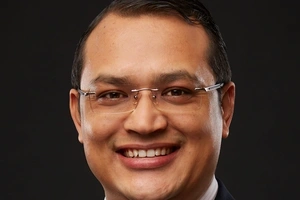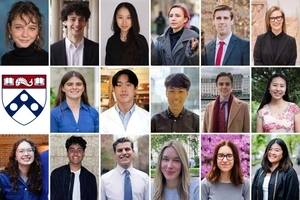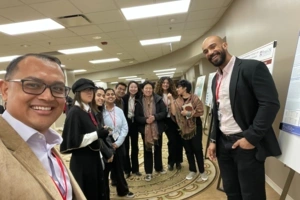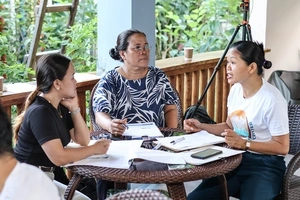On the African continent, 70 percent of the population is under 30. At a hearing February 13, the US House Foreign Affairs Subcommittee on Africa, Global Health, Global Human Rights, and International Organizations held a hearing to ask what this “youth bulge” means for American policy in the region.
Penn GSE’s Krystal Strong, an expert in youth leadership in African countries, told the subcommittee this new generation represents a huge opportunity for African societies and the US, but only if a path to leadership can be opened for them.
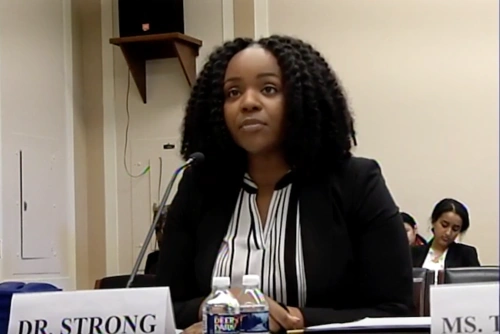
“I have found that youth are not waiting for political leaders to hand over power in order to assume leadership roles within their communities,” Strong said. “On the contrary, youth are taking on the work that governments and social institutions are meant to do in the absence of adequate resources and with great creativity.”
Strong teaches in Penn GSE’s Education, Culture, and Society program, where students explore the role education plays in reproducing and potentially transforming racialized, ethnic, class, and gendered relations and structures of inequality.
In her own research, Strong has spent time among student leaders in African universities and cataloged student protests. She has documented the frustration students face when governments have attempted to use access to education as a tool of compliance.
In the current moment, institutions are where students are learning what it means to be a citizen, developing political identities, and learning the extent to which their governments and societies will support them.
What’s happening on schools and college campuses offers an important window into the priorities and struggles of young Africans, Strong said.
“Schools are so important historically. In the current moment, institutions are where students are learning what it means to be a citizen, developing political identities, and learning the extent to which their governments and societies will support them,” Strong said “Expanding opportunities … will go a very long way in ensuring that youth, when they become adults, when they move into positions of authority, will be equipped with the tools to do so in a way that’s transformative.”
She offered the subcommittee these three recommendations for US policy:
Expand educational and leadership opportunities in the United States
“We have successful initiatives that provide opportunities for African youth. These should be expanded and opportunities for support should be offered after youth return to their countries.
“The recent increase in travel restrictions for Nigerians, Eritreans, and citizens of other African countries undermines young people’s ability to take advantage of such opportunities. Lifting these restrictions is a needed step if we are to expand support for youth. When African youth are not allowed to travel to the U.S., they will pursue options in other countries or within existing African regimes.”
Support youth leadership development in African countries
“The U.S. already supports African youth leadership development through four Young African Leadership Initiative leadership centers, but there are opportunities to do more. Expanding leadership centers to more nations, integrating primary and secondary institutions, and providing more forms of direct support to youth leaders would build the capacity of the youth leadership ecosystem and institutions that are already contexts of youth leadership development.”
Pressure leaders to create youth-centered policies and leadership opportunities
“The government policies of many African countries impede the ability of youth to go to school, to find jobs, to start businesses, to peacefully protest, to receive medical care and other social services, and to run for elected office. The U.S. should use its alliances to play a larger role in pressuring African leaders to create youth-centered policies and leadership opportunities.
“With an aging population of leaders and a rapidly growing population of young people, it is certain that we will continue to witness significant leadership changes across Africa.
How these transitions play out will be shaped by the degree to which youth are welcomed into positions of leadership.
“The U.S. can play a supportive role in peaceful transitions of power if we engage with African youth and governments in ways that expand opportunities for young people.”
Media Inquiries
Penn GSE Communications is here to help reporters connect with the education experts they need.

